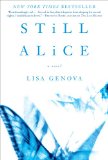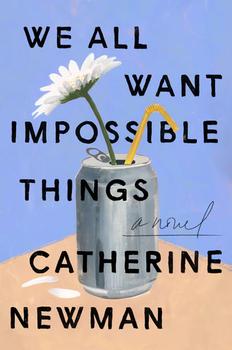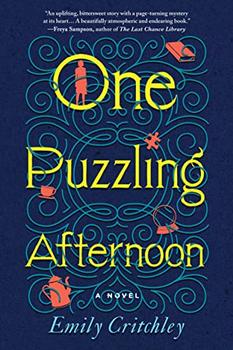Summary | Excerpt | Reading Guide | Reviews | Beyond the book | Read-Alikes | Genres & Themes | Author Bio

Neuroscientist Lisa Genova's first novel, Still Alice, has been endorsed
by the National Alzheimer's Association with good reason: It's one of the few
books that addresses what it's like to live with the disease from the patient's
point of view.
Genova's work with Alzheimer's patients has given her a deep understanding of
the disorder and its impact not only on the afflicted, but on their friends and
family as well. She does a remarkable job of sharing that perspective with her
readers. Most of us have a sketchy familiarity with Alzheimer's and its primary
symptom: a gradual loss of memory. Genova moves her readers beyond their
superficial knowledge to a more profound grasp of the illness, illuminating
consequences of it that most haven't considered (for example, the eventual loss
of the ability to read a novel, as Alzheimer's patients lose the capacity to
keep track of a plot line).
The novel follows Alice Howland's life from her first suspicions of the illness
through its conclusive diagnoses to how Alice and her family learn to cope as
her condition worsens. Although the story's progression is somewhat predictable,
the scenes Genova relates are generally unexpected. Like Alice, the reader never
knows when the disease will impact a situation or simply lie dormant in the
background. When Alice does exhibit symptoms, they seem to come when she, and
the reader, least expect them.
Genova also explores the difficult decisions faced by Alzheimer's patients and
their families. She delves into such subjects as treatment options, care
facilities, coping mechanisms, genetic implications, and even suicide. The text
occasionally gets a bit wordy and artificial during some of these discussions,
but for the most part they add to the sense of realism the novel projects.
The book does lack a certain emotional depth. The narrator reports Alice's
actions, but doesn't explore her feelings to any great extent; it's a bit
clinical. This distance does, however, allow readers to develop a greater
understanding of Alzheimer's while at the same time keeping them from becoming
mired in the tragedy of the situation. There are two or three touching scenes
between Alice and her daughters, but the author largely avoids melodrama.
Readers will leave the book in a contemplative state of mind, eager to tell
others what they've learned, as opposed to feeling they've been witnesses to a
poignant family drama; we never really learn enough about Alice to mourn her
ultimate fate.
Still Alice seems designed specifically with book clubs in mind. Not only
does the subject matter lend itself to in-depth discussion, but the novel
features both a reader's guide and an extensive author Q&A. Beyond the book club
circuit, those curious about this insidious disease will find this an
enlightening and enjoyable read.
About the Author
Lisa Genova, a first-time novelist, holds a Ph.D. in neuroscience from Harvard
University and is an online columnist for the National Alzheimer's Association.
She lives with her family in Massachusetts.
![]() This review
first ran in the April 1, 2009
issue of BookBrowse Recommends.
This review
first ran in the April 1, 2009
issue of BookBrowse Recommends.

If you liked Still Alice, try these:

by Catherine Newman
Published 2023
For lovers of Meg Wolitzer, Maria Semple, and Jenny Offill comes this raucous, poignant celebration of life, love, and friendship at its imperfect and radiant best.

by Emily Critchley
Published 2023
A mystery she can't remember. A friend she can't forget.
Your guide toexceptional books
BookBrowse seeks out and recommends the best in contemporary fiction and nonfiction—books that not only engage and entertain but also deepen our understanding of ourselves and the world around us.